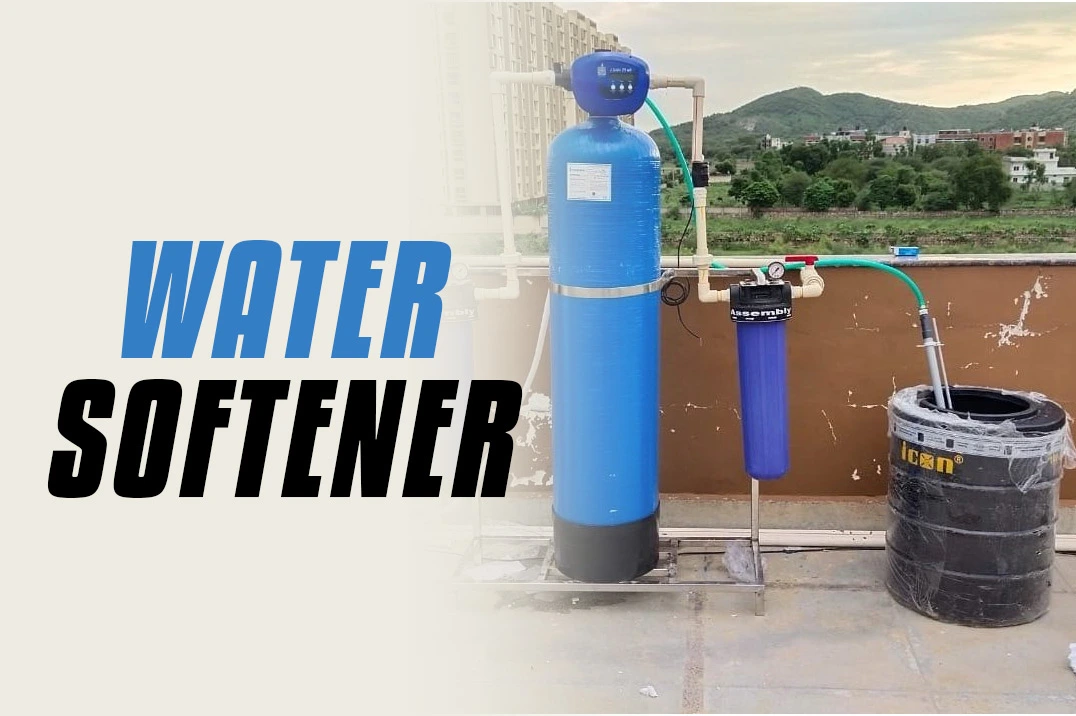What Is a Water Softener and How Does It Work?
Water softeners are an essential tool for many homeowners facing the challenges of hard water. Hard water is high in minerals, specifically calcium and magnesium, which can lead to issues like clogged pipes, less efficient appliances, and the need for frequent cleaning. In this article, we will provide a comprehensive guide to water softeners, explaining how they work and why they are essential in homes with hard water. We will also explore how these devices can improve water quality, reduce household maintenance, and extend the lifespan of your plumbing system and appliances.
What is Hard Water?
Hard water contains high levels of dissolved minerals, particularly calcium and magnesium. While these minerals are not harmful to your health, they can cause significant issues in your home. The minerals in hard water tend to build up in pipes, appliances, and fixtures, leading to scale formation, decreased water flow, and reduced efficiency of household appliances such as dishwashers and washing machines.
How a Water Softener Works
A water softener is designed to remove these hard minerals from water, making it “soft” and easier to use for household purposes. The process of softening water typically involves the use of ion exchange technology.
The Ion Exchange Process
A water softener contains a tank filled with resin beads that are coated with sodium or potassium ions. As hard water flows through the resin beads, the calcium and magnesium ions are attracted to the beads and replaced with sodium or potassium ions. This exchange removes the hardness from the water, resulting in soft water that is more suitable for use throughout the home.
Benefits of Using a Water Softener
There are numerous advantages to using a water softener, especially in areas with hard water. Below are some key benefits:
- Improved Appliance Lifespan
Hard water causes scale buildup in appliances, which can decrease their efficiency and lifespan. A water softener prevents scale formation, allowing your appliances to work more efficiently and last longer. - Reduced Energy Costs
Appliances like water heaters work more efficiently when they aren’t dealing with scale buildup. By using a hard water softener, your water heater will use less energy, reducing your utility bills. - Better Soap Efficiency
Soft water allows soap and detergents to work more effectively, meaning you’ll need less product to achieve the same results. This can lead to cost savings over time. - Cleaner Dishes and Clothes
Hard water can leave spots on dishes and soap scum on clothes. Using a water softener helps eliminate these issues, leaving your dishes cleaner and your clothes softer and brighter. - Softer Skin and Hair
Hard water can make skin and hair feel dry and rough. Soft water is gentler, leading to healthier skin and softer hair.
Types of Water Softeners
There are different types of water softeners available, and choosing the right one depends on your household’s specific needs.
Salt-Based Water Softeners
These are the most common type and work by using the ion exchange process described earlier. A salt-based softener requires periodic refilling of salt to continue operating efficiently.
Salt-Free Water Softeners
A salt-free water softener does not remove minerals but conditions the water to prevent scale buildup. This type is ideal for people who are concerned about the sodium content in softened water, though it may not be as effective in extremely hard water areas.
Magnetic Water Softeners
This type of softener uses magnets to alter the properties of the minerals in the water, preventing them from sticking to surfaces. While not as effective as traditional softeners, magnetic systems are maintenance-free and do not require salt.
Maintenance of a Water Softener
Regular maintenance is key to ensuring that your water softener continues to function efficiently. This includes:
- Refilling the Salt Tank
For salt-based softeners, the salt tank needs to be checked regularly and refilled as needed. The frequency of refilling depends on water usage and the hardness of the water. - Cleaning the Brine Tank
Periodically, the brine tank should be cleaned to prevent the buildup of sediment and other debris that could affect the softener’s performance. - Checking Resin Beads
Over time, the resin beads can wear out and may need to be replaced to maintain effective softening.
Conclusion
Investing in a water softener is a wise choice for homeowners dealing with the negative effects of hard water. By removing excess minerals, a water softener can protect your plumbing, improve the performance of household appliances, and enhance the quality of your water. Whether you choose a salt-based, salt-free, or magnetic system, regular maintenance will ensure you enjoy the benefits of softened water for years to come.
FAQs
Hard water contains high levels of minerals, such as calcium and magnesium, which cause scaling and reduce the effectiveness of soap and appliances. Soft water, on the other hand, has been treated to remove these minerals, making it more efficient for household use.
If you notice scale buildup on faucets, appliances, or showerheads, or if your soap doesn’t lather well, you likely have hard water. A simple water test can determine your water’s hardness level.
Softened water is generally safe to drink. However, if you are on a sodium-restricted diet, you may want to consider a salt-free water softener or consult your doctor about the sodium content in softened water.
No, water softeners are designed specifically to remove calcium and magnesium. If you’re concerned about other contaminants like chlorine, iron, or bacteria, you may need to install additional filtration systems.



